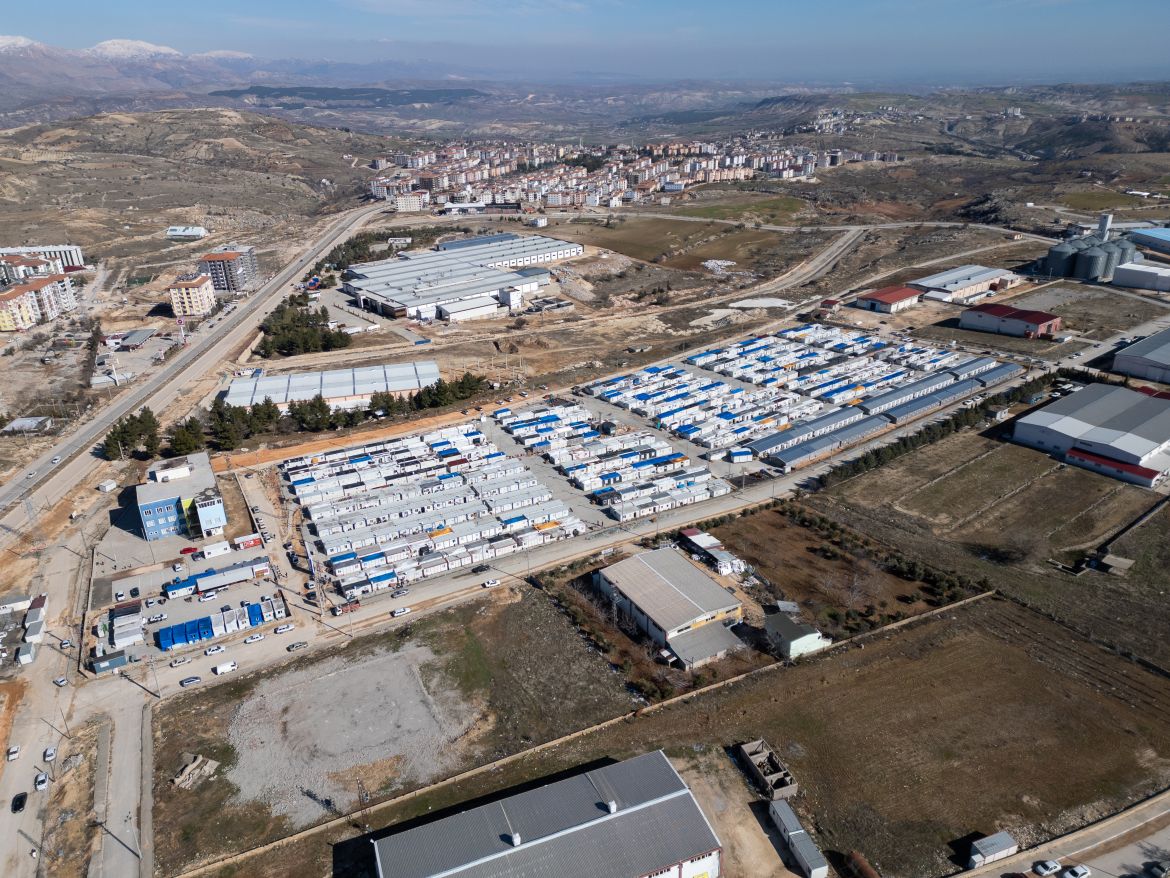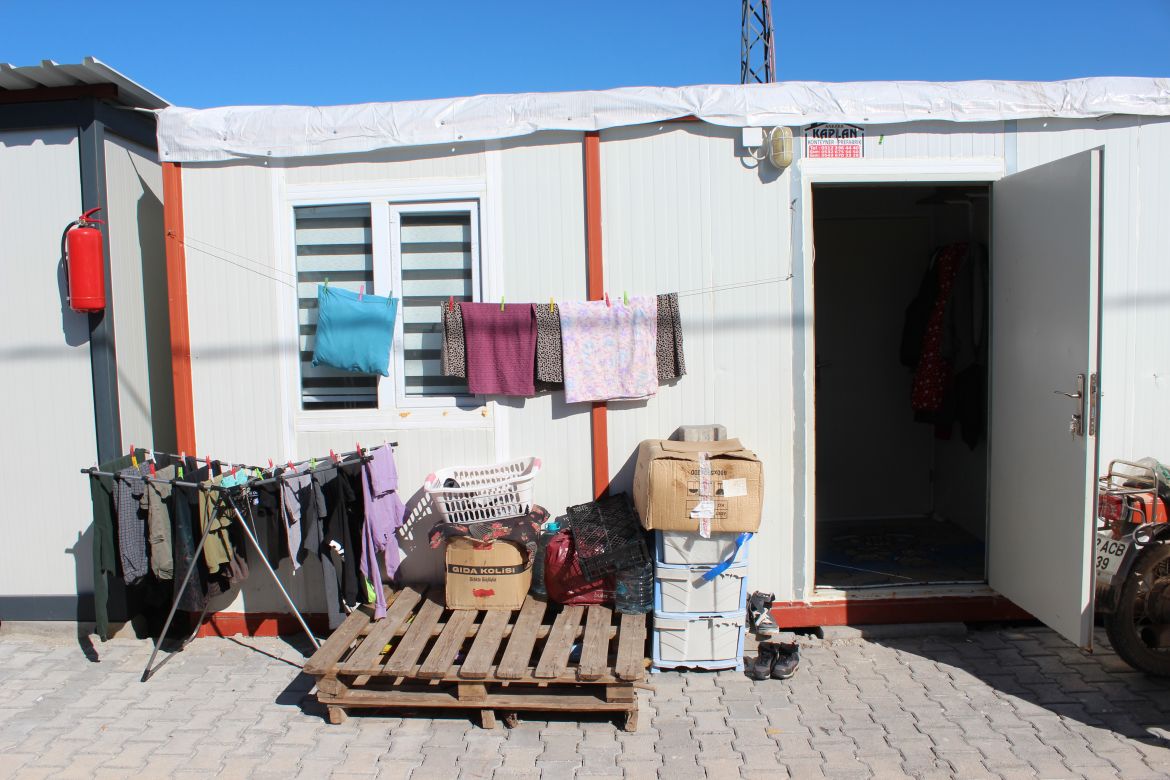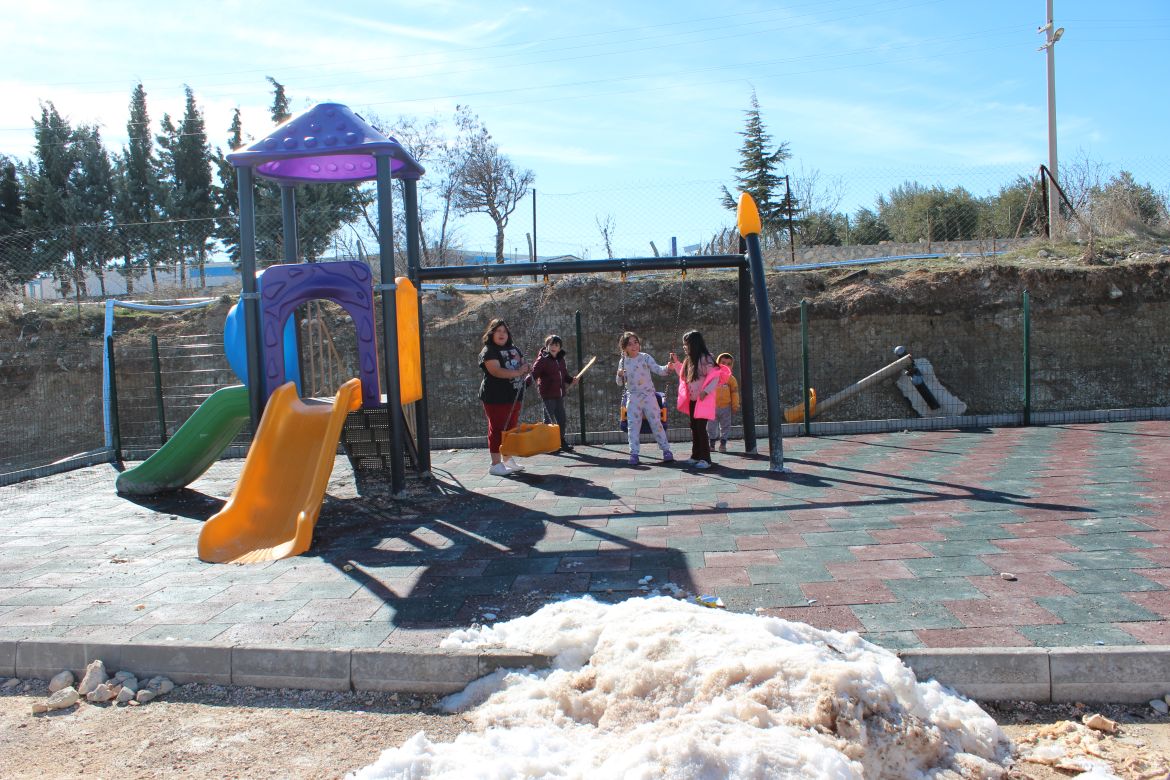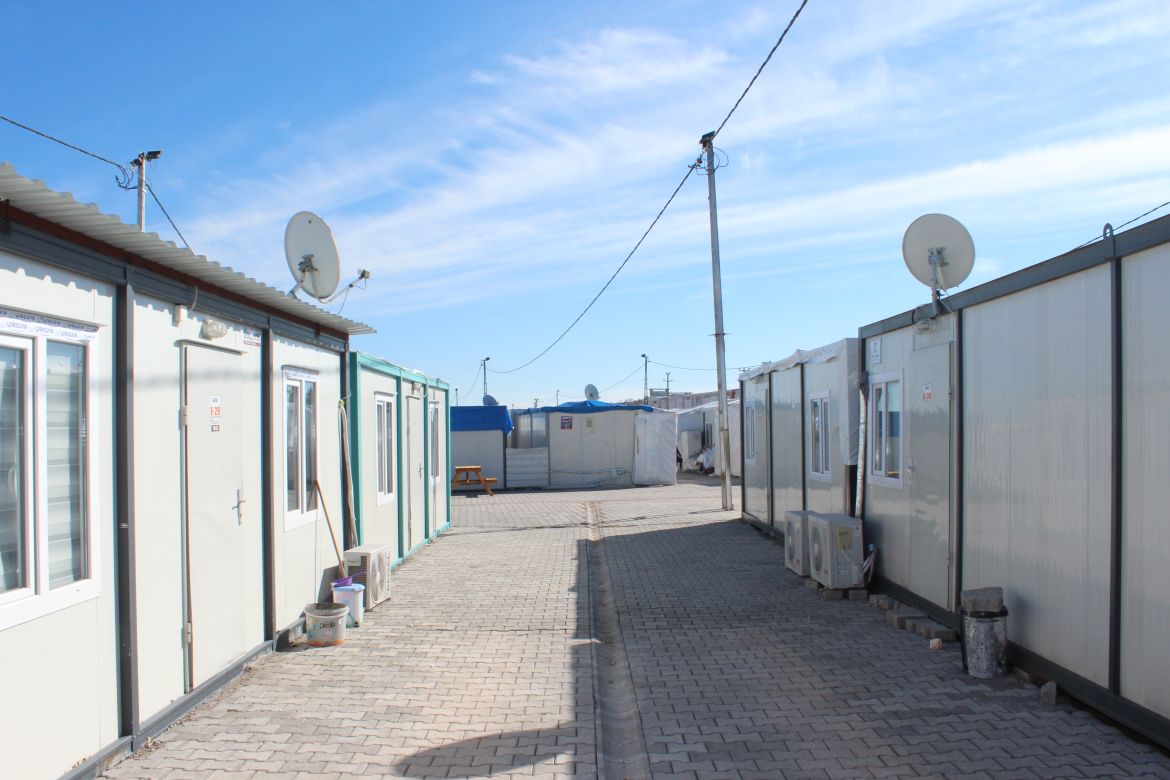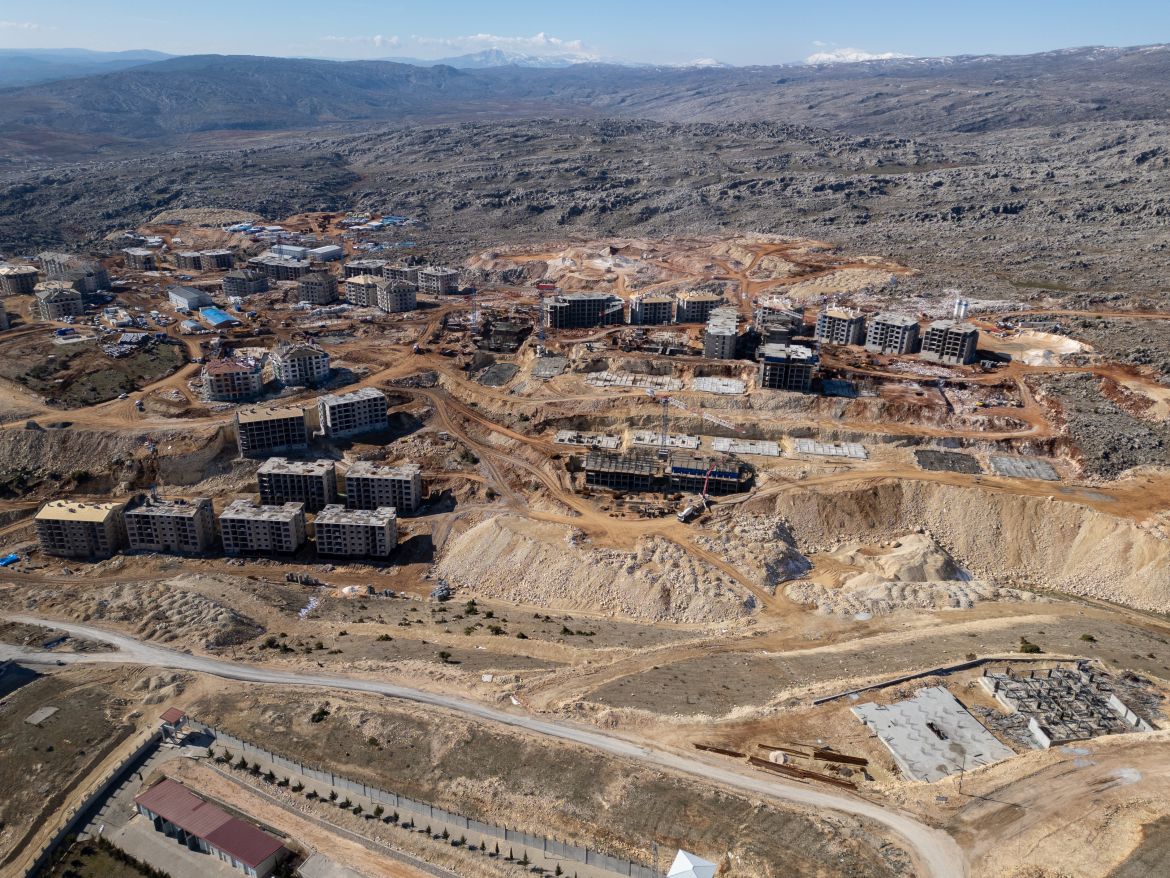In Pictures
Photos: Turks left homeless by earthquake stuck in container cities
More than 689,000 of the estimated three million displaced by the earthquakes in Turkey still live in temporary containers.

A year on from the earthquakes that devastated much of southern Turkey, more than 689,000 of the estimated 3 million displaced people continue to live in temporary containers.
About 1,200 people live in some 300 containers at a site on land owned by a textile company in Besni, a city in Adiyaman province, in the country’s southeast.
Many of the containers are about 21sq metres (226sq feet), with rooms not much longer or wider than an adult’s arm span. They have running water, shower spaces and a small toilet.
When families move into them, they are typically empty, although Turkey’s Disaster and Emergency Management Authority (AFAD) then provides them with some essentials such as bedding, a fridge, and an air-conditioner or heater.
The residents here are luckier than some. Some homeless people in Adiyaman remain at risk from contaminated water and many containers are vulnerable to rain and cold, according to the NGO Hayata Destek (Support to Life).
Meanwhile, many refugees are living in makeshift tents or heavily damaged buildings in Adiyaman.
In the container site in Besni, the lack of space makes life particularly hard, but there is no prospect for most of leaving anytime soon.
Owners of destroyed properties are usually eligible for housing being built for earthquake survivors by TOKI, the government-backed housing agency. But many of the people living at the site used to rent.
Amid wide-scale destruction in the province, a scarcity of safe property means rents have soared by some 300 percent – well beyond many families’ means. Mass rebuilding is needed to bring down rents, but the process has been slow.
After the earthquakes on February 6 last year, President Recep Tayyip Erdogan promised that all affected buildings would be rebuilt within a year. He later pledged to deliver 319,000 new housing units by this month, with the same amount delivered in the next year.
However, despite construction on 307,000 housing units having begun, just 46,000 had been delivered by January, according to data from the Ministry of Environment, Urbanisation and Climate Change.
